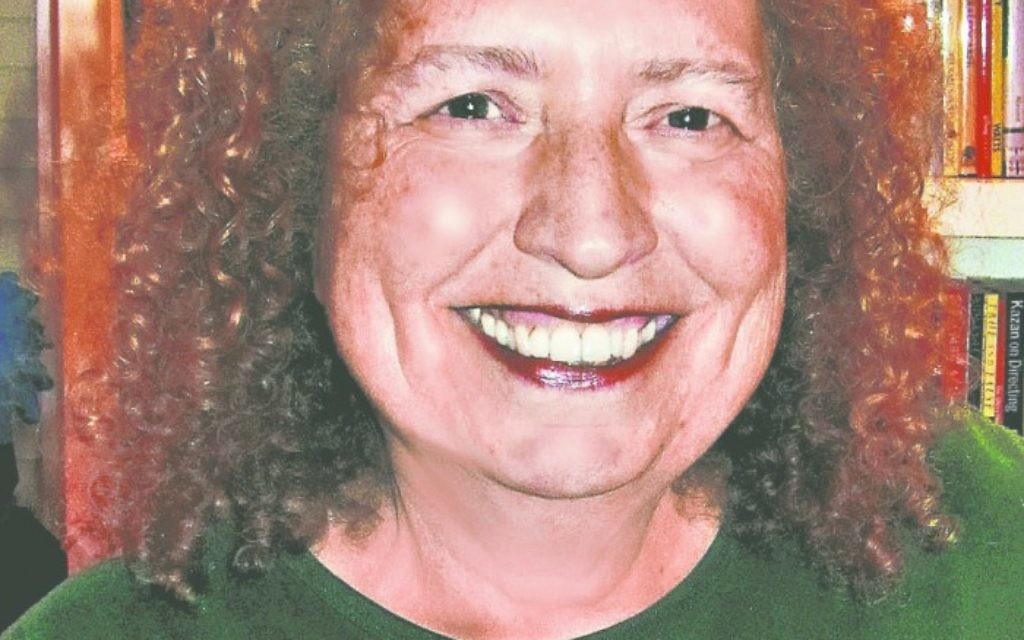A Visit From Great-Uncle Louie
This is the time of year when my relatives were in a good mood. For the store owners, customers who saved their money all year were now spending it.
My parents’ shop bustled with women who made their final layaway payments for holiday dresses and beaded sweaters. It was the only time when men came in, to buy presents for the women in their lives. (A lot of lingerie made its way into silver gift boxes.) The educators in the family were thrilled, too, free of lesson plans, papers to grade and crowded classrooms.
Everybody was happy.
Get The AJT Newsletter by email and never miss our top stories Free Sign Up
My worldly Aunt Cylvia displayed her “Chanukah bush,” a plump evergreen festooned with dreidels and Jewish stars. She and Uncle Harry threw a big New Year’s party with gifts for everyone.
Both sets of my grandparents had classic European menorahs. After lighting the candles and singing “Maoz Tsur” and other songs from Hebrew school, we ate heaping platefuls of latkes. Maternal and paternal grandparents considered gifts to be goyishe. We received Chanukah gelt, a half-dollar from each set. Post-b’nai mitzvah, we were raised to a dollar.
The highlight of the season, however, had nothing to do with parties or food. It was the visit by my Great-Uncle Louie, my maternal grandmother’s older brother, who came for his annual bath.
I’d better explain that.
Uncle Louie lived on Biddle Street, in a derelict neighborhood in downtown St. Louis. He had a room somewhere, but none of us had ever seen it. He sold newspapers on a corner from early morning until nightfall.
My father occasionally took us downtown, with the idea that we needed to get a taste of the real world. Whenever we came upon a poor person hawking pencils or trinkets, my father gave us a nickel. We put the coin in the cup, but we didn’t take the item.
“You don’t need a pencil,” my father told us, “but that man does because he can sell it to somebody else.”
Biddle Street was not the sort of neighborhood in which one would enjoy a leisurely stroll, but my father kept us searching. “I know Uncle Louie lives around here,” he’d say, or “Let’s find Uncle Louie. I want a paper.”
We knew that both St. Louis papers were delivered to our house daily.
My brother and I were fascinated and perplexed that Uncle Louie had no bathtub. Did he have a sink, a toilet, a chair, a table, a bed? My father assured us that Louie had a bed and shared a toilet. My mother said, “It’s his choice,” and our questions made my grandmother cry and my grandfather scowl.
The second important thing about Uncle Louie was that he never changed. Every year, he had the same coat, hat, eyeglasses, facial wrinkles, limp and odor. He had no phone, so my family never knew what time he’d arrive, but it was always during the Sunday of Chanukah when he knew all of us would be at his sister’s house.
Mysterious Louie fascinated us. First, he put a box of his secret personal possessions under the bed he would sleep in. Then he ceremoniously entered the bathroom, armed with clean towels and washcloth.
After at least an hour of bathing, he called out, and Grandma handed him a brand-new set of underwear and a clean shirt. My grandfather, a tailor, provided him with a new pair of trousers.
In his spiffy clothes, Louie entertained us with hilarious stories about life on Biddle Street. He gave each of us a $2 bill and sang funny songs.
Then a couple of hours later, Louie had a little talk with my grandmother and put on his old coat and hat, and my father drove him back downtown. Louie asked to be dropped at a corner and never let my father know where he lived.
My father reported that Louie’s departing words were always the same: “I’ll see your beautiful family next year! Make sure your kids stay in school.”
He did, and we did.





comments